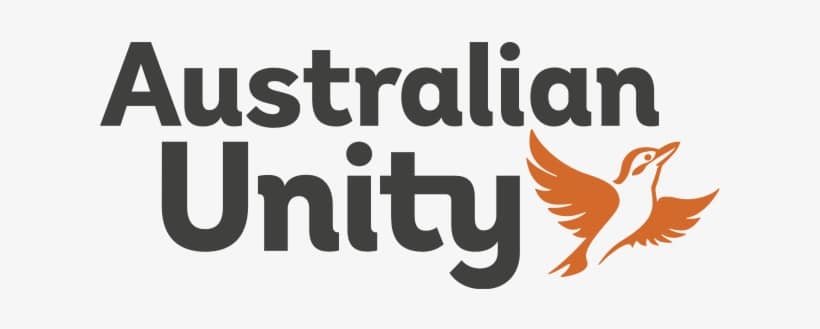Home > Health Insurance > Pre-Existing Condition Health Insurance
Pre-Existing Condition Health Insurance
Compare health insurance for pre-existing conditions in one place here with Savvy.
Author
Savvy Editorial TeamFact checked



We’ve partnered with Compare Club to bring you a range of health insurance policies to help you compare them side by side.
Many Australians live with a variety of pre-existing health conditions. However, under Australia’s ‘community-rated’ health system, that doesn’t mean they can’t access affordable health insurance. You can compare health cover policies in one place right here through Savvy.
We provide a quick and simple health insurance comparison service to help you find the health coverage you need. Within minutes, you could be looking at a range of health insurance policy quotes, which you’re able to compare side-by-side to find one that fits your needs from a panel of trusted insurers. Start comparing free, no-obligation quotes here through Savvy today.
What is a pre-existing health condition when it comes to health insurance?
On paper, a pre-existing health condition is any ailment or complaint that you’ve experienced or had symptoms of in the six months prior to buying a health insurance policy (or upgrading an existing policy). However, it’s not quite as simple as that, because what if you haven’t experienced any symptoms and don’t know you have the condition? Can it still be called a pre-existing condition if you don’t know about it?
What’s the definition of ‘pre-existing’?
The definition of what is a pre-existing condition is an important one, as under the Private Health Insurance Act 2007, a health insurer can ask you to wait for 12 months before claiming for any pre-existing condition when you first buy a new hospital insurance policy. For this reason, knowing what is and isn’t classified as a pre-existing condition becomes very important. Examples of common pre-existing conditions include:
- Allergies
- Diabetes
- Glaucoma
- Hypertension
- Sleep apnoea
- Migraines
How will my health insurer know if I have a pre-existing health condition?
The decision about whether a condition is pre-existing or not lies with your health insurance provider. If necessary, they will appoint their own doctor to assess the situation and decide if your condition did exist prior to you signing up for your health policy. However, this doctor will have to consider information provided by your own healthcare providers before making a decision. For example, if you are found to have an advanced cancer tumour, a medical specialist may determine the condition existed for a long time before its discovery. However, if you had no symptoms and were not aware of the issue, it may not be regarded as a pre-existing condition by your health insurer.
Because the issue of pre-existing conditions can take time to resolve, it’s important to have your health insurance in place (if possible) at least a year before you need hospital treatment. Savvy can help you compare a range of free health insurance quotes so you can get your health insurance sorted out without further delay.
Can I still get health insurance if I have a pre-existing condition?
Yes – you can still get health insurance if you have a pre-existing condition and you won’t have to pay any more for your health cover than the next person. In fact, under Australia’s ‘community-rated’ health insurance system, health insurers are not permitted to refuse to cover anyone just because they have a known health condition. In the same way, health funds can’t discriminate against anyone on the grounds of their age, gender or disability. Pre-existing conditions only affect the waiting periods you may have to serve before you can make a claim on your health insurance policy.
What are the waiting periods for pre-existing conditions?
There are two different types of health insurance available in Australia: hospital cover and extras cover.
- Hospital cover – assists with the costs of medical treatment if you are admitted to hospital
- Extras cover – provides benefits for treatment received that are provided in a non-hospital setting but not covered by Medicare, such as dental and physio treatments
Waiting periods which may apply if you have a pre-existing health condition vary depending on whether you have a hospital or extras policy. The waiting periods are:
Hospital cover waiting periods
- 12 months for any pre-existing conditions
- 12 months for pregnancy and childbirth services (obstetrics)
- 2 months for psychiatric care, rehabilitation and palliative care (even for a pre-existing condition)
- 2 months for all other conditions
Extras cover – common waiting periods*
- 2 months for general dental and physiotherapy
- 6 months for optical items (such as glasses and contact lenses)
- 12 months for major dental procedures (which may include extractions, crowns and bridges)
- 1, 2 or 3 years for some high-cost procedures such as orthodontics (which may include braces, aligners and teeth straightening procedures), hearing aids
*Waiting periods for extras cover aren’t regulated in the same way as those for hospital cover, so they may vary between health insurance providers. In some cases, certain waiting periods can be waived at the discretion of the fund
The good news is that once you’ve served a waiting period for a particular category of treatment, you may not have to serve that waiting period again, even if you swap health funds. This only applies to a switch from one fund to another where you buy an equiivalent level of cover. If you upgrade to a higher level of cover, which offers cover for clinical categories that you weren’t previously insured for, you may have to serve out those additional waiting periods before you can claim.
How do I compare health cover policies for people with a pre-existing health condition?
The areas to compare between health funds vary depending on the type of insurance you’re looking at.
Comparing hospital cover policies
These are some areas to look at when comparing hospital cover policies:
- What cover do you need? Does the policy provide cover for treatment areas you know you’ll need, particularly if you have any pre-existing conditions?
- What tier of hospital cover can you afford? You can choose between basic, bronze, silver and gold tier policies. It’s also important to consider costs between different policies, such as comparing one bronze policy against another
- What are the excess payments on offer, and what could you afford if you do get admitted to hospital? Excess payments can range from zero to a maximum of $750 for singles and $1,500 for couples or families
- Are there any co-payments required for hospital admission? Co-payments can range from zero to $100 a day, often capped at between $500 and $700
Comparing extras policies
Look at the differences between health insurers in these areas when comparing extras policies:
- Are there any special offers available? Special offers for new customers can include a waiver on waiting periods, so you may be able to claim straight away even if you have a pre-existing condition
- Choose the level of extras cover that offers the benefits you need – though these levels aren’t as tightly regulated, you can generally choose between cheaper and more expensive policies, with the latter typically being the most comprehensive in terms of coverage
- What are the policy limits for different categories of treatment? For example, a cheaper policy may offer a benefit limit of $100 for optical, whereas a more expensive comprehensive policy could offer $350 for optical benefits
- Are there free benefits which you may find useful and can save you money, such as no-cost dental check-ups or the first physio or chiro appointment offered at no out-of-pocket cost?
Types of health insurance
This can help you pay for medical treatment if you need to be admitted to hospital. It can help cover the cost of your admission or accommodation and the fees charged by doctors, surgeons and anaesthetists. It can also cover other costs associated with a stay in a private hospital.
This helps cover the costs of health care treatments outside a hospital setting which aren’t covered by Medicare. This can include major and minor dental treatment, orthodontics, hearing aids, physiotherapy, glasses, contact lenses and podiatry (in most cases with annual limits).
This is a standard health insurance policy designed for a single person, rather than being tailored to cater to the needs of a couple or family. It may include hospital cover plus extras, or either of these types of insurance on their own, depending on what you're after for your health cover.
A family health insurance policy is designed for a family unit including dependent children who may reach up to 31 years of age with some insurers. It offers private health insurance suitable for the whole family and may include shared limits for all members included in your policy.
A health insurance policy aimed at seniors is designed to appeal to people who are in the second half of their life. These are often specific Silver Plus policies that offer the same cover as other health insurance policies, with the exception that pregnancy and childbirth cover may not be included.
Visitors who are in Australia on a temporary basis for travel, work or study may be able to take out Overseas Visitors Health Cover (OVHC). Many visas issued in Australia come with a requirement to take out this type of insurance, which covers visitors who may not be covered by Medicare.
Ambulance cover is generally available either packaged into your private health insurance or on its own as a separate policy or subscription. By having this protection, you could be covered for all eligible ambulance travel in Australia (subject to your insurer's terms and conditions).
The cheapest and most barebones form of private hospital insurance, this can include cover for rehab, in-hospital psychiatric services and palliative care. Having this policy will enable you to avoid paying the Medicare Levy Surcharge (MLS) and Lifetime Health Cover (LHC) loading.
Bronze hospital cover is a step up from basic insurance, including 18 further clinical categories such as ear, nose and throat, bone, joint and muscle, digestive system, joint reconstructions, gynaecology and chemotherapy, radiotherapy and immunotherapy for cancer.
Silver hospital cover is the second-most expensive type of policy and offers the second-most clinical categories. On top of what's offered by basic and bronze cover, it also includes heart and vascular system, lung and chest, blood, hearing device implantation and dental surgery.
The highest level of private hospital insurance available in Australia, gold policies can offer cover for pregnancy and birth, weight loss surgery, assisted reproductive services and insulin pumps on top of all the categories provided by silver, bronze and basic hospital insurance.
Why compare health insurance through Savvy?
100% free service
Our comparison tool doesn’t cost you a cent, allowing anyone to compare offers from trusted insurers around Australia for free.
Compare policies online in one place
You can consider the inclusions, premiums, benefits and other key factors easily with us, whether you’re at home or on the go.
Trusted insurers
Considering offers from trusted insurance providers can help give you peace of mind that you’re comparing high-quality policies.
Frequently asked questions about health cover for those with pre-existing conditions
No – although pregnancy is not considered a pre-existing condition, there's still a 12-month waiting period under a hospital cover policy. This is why it's very important to plan your health insurance purchase well in advance if you're planning to add to your family unit.
The process of buying health insurance through Savvy is easy, consisting of the following steps:
- Answer a few simple questions about the cover you’re looking for
- Receive free quotes to compare online
- Either choose the policy which best fits your needs, or ask for a call-back to get a specialist to help you with your choice
- Complete the application online or with assistance over the phone to make sure the process goes smoothly
- Arrange payment online for your new policy
No – if you've already served waiting periods for pre-existing conditions, you won’t have to serve them again if you swap from one health fund to another and buy either the same level of cover or a lower-level policy. However, if you're currently without any health insurance or swap to a higher tier, you may have to serve out the required waiting period.
No – a family history of a certain illness or disease doesn’t constitute a pre-existing condition in the eyes of an insurer, meaning the relevant waiting period won’t apply if you don’t have it when purchasing your policy. It is illegal in Australia to discriminate against or decline health insurance to anyone based on their past medical history (which includes your genetic predisposition to certain inherited conditions).
Helpful health insurance guides
Looking for health insurance to cover your condition or treatment?
Read one of our helpful guides on a range of different ailments and potential hospital or extras treatments to help you find out if they're covered.
Disclaimer:
Savvy is partnered with Compare Club Australia Pty Ltd (AFS representative number 001279036) of Alternative Media Pty Ltd (AFS License number 486326) to provide readers with a variety of health insurance policies to compare. Savvy earns a commission from Compare Club each time a customer buys a health insurance policy via our website. We don’t arrange for products to be purchased from these brands directly, as all purchases are conducted via Compare Club.
Savvy’s comparison service is provided by Compare Club. Compare Club compares selected products from a panel of trusted insurers and does not compare all products in the market.
Any advice presented above or on other pages is general in nature and doesn’t consider your personal or business objectives, needs or finances. It’s always important to consider whether advice is suitable for you before purchasing an insurance policy.
For any further information on the variety of insurers compared by Compare Club or how their business works, you can read their Financial Services Guide.










